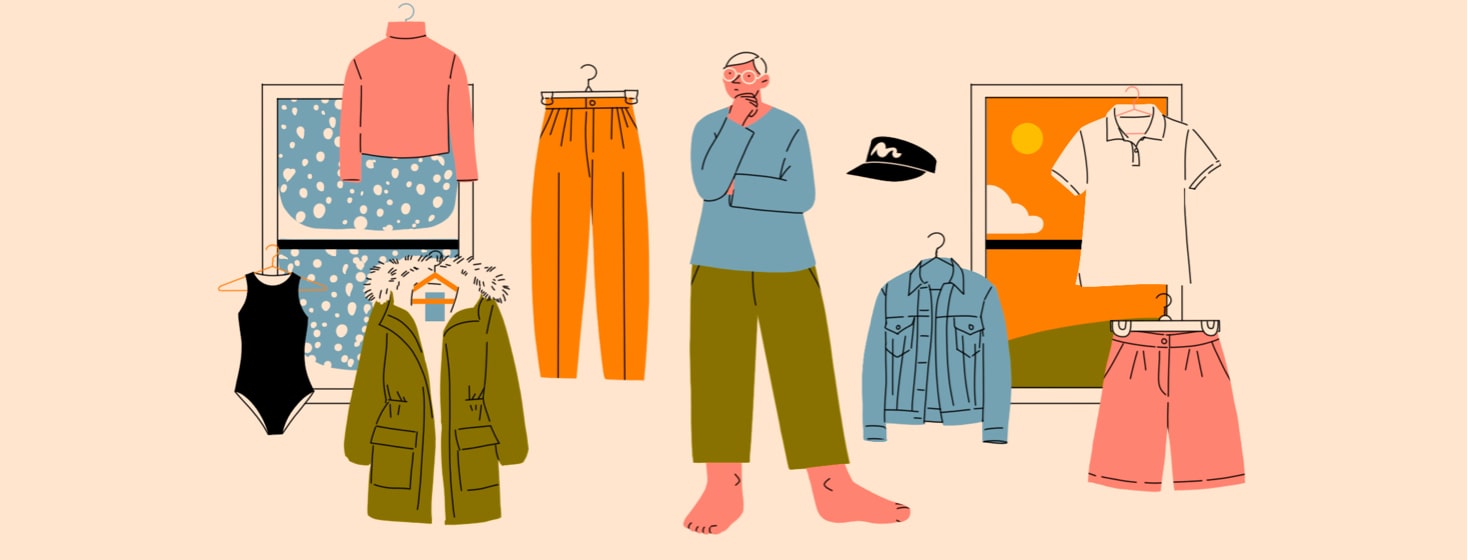Through the Seasons with RA
Having lived in a four-season climate throughout my life, I have come to understand how important it is to adjust your approach to the day-to-day management of RA to address these climate changes. For instance, how you venture out in July is quite different than in February and it's not just the obvious changes like the difference in clothing. Beyond that, more planning is involved in going outdoors than just clothing. Often, you have to consider the conditions outside in the winter. Is it icy? How cold is it? How hot and humid is it? What are the driving conditions? Will it take me longer to get to my destination than usual?
Adjusting my activities
For me, I have to consider what the activity itself is. For instance, I walk every day. So, if it is summer, I need to consider what the heat, sunlight, and humidity might be and dress and plan accordingly. I will likely forego my walk if it is too hot/humid. Conversely, I have to contemplate the temperature, wind factor, and surface conditions in the winter. Ice brings everything to a screeching halt. In general, each season has its unique challenges for those of us with RA. That means that we have to step back and plan as each season comes upon us if we are to manage our RA successfully.
Summer often means walking early in the morning, while I try to walk during the warmest time of day in the winter. This means that my entire exercise routine has to be adjusted according to the season. I am a swimmer and during the summer I enjoy using the outdoor pool. In the winter, I move indoors. This may mean swimming at different times of day, depending on the pool hours.
Staying active in every season
Another change for me is the tendency to be more sedentary in the winter. My summer activities include biking, golfing, and pickleball. None of those can be done in the winter (unless I play indoor pickleball, which I do not). To avoid becoming too sedentary, I need to find ways to keep moving in the winter.
One thing I do is increase my walking and use the indoor gym we have at our disposal. I rarely use it in the summer but find it very helpful to keep moving in the winter. I also swim more often to keep movement levels up. Again, careful planning means a smoother transition from one season to the next. This helps to prevent any likelihood of ignoring the changes.
Managing my wardrobe
Clothing changes often mean adjusting our closets, so I start early on this, exchanging my winter and summer footwear for one thing. I have the luxury of having all of my clothes in two closets, organized by season, so I do not have to pack and unpack them annually. When I did have to do that, I would start the project well before the full season change so that it was not too physically demanding.
I also had “transition clothes” and shoes to make adjusting from one season to the next a bit easier. For instance, I have some tops and slacks that work all year and I make sure to have them easily accessible all year long. That way, as winter melts into summer, I can simply shed some layers.
The challenges of shifting daylight hours
The decrease in daylight is always a big adjustment for me. I find I sleep later and go to bed earlier in the winter, largely because of the daylight shift. That always takes some adjusting and my RA seems to react to it every year. I have noticed that flares tend to be associated with these changes, so I try to be even more vigilant about managing my RA in all the ways I CAN control it. It may mean reducing stress, taking more breaks throughout the day, getting a massage or other spa treatment, etc. Positive distractions work for me to counter these sometimes annoying and painful episodes.
Each season has its unique challenges for those of us with RA. That means that we have to step back and plan as each season comes upon us if we are to manage our RA successfully.
Nan

Join the conversation